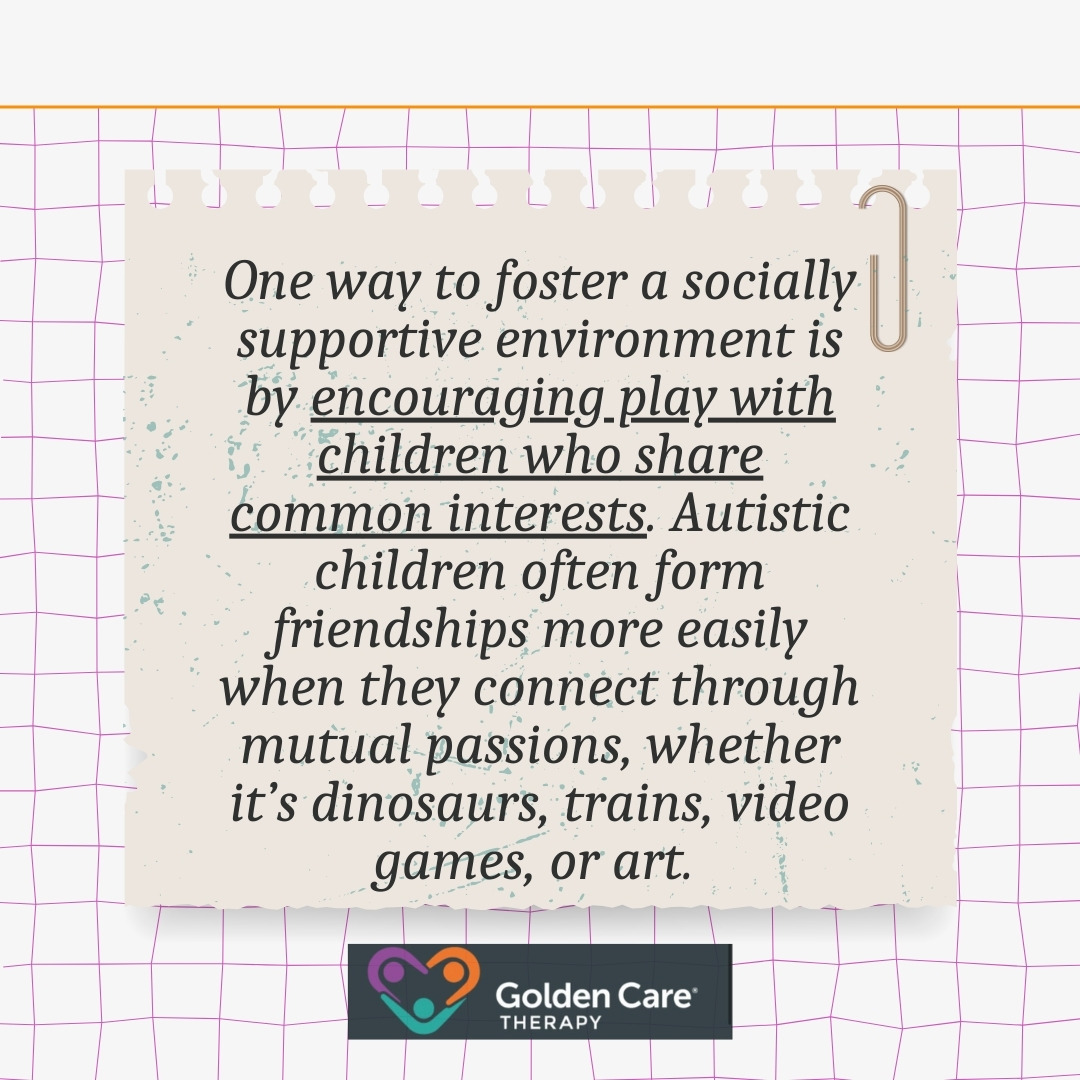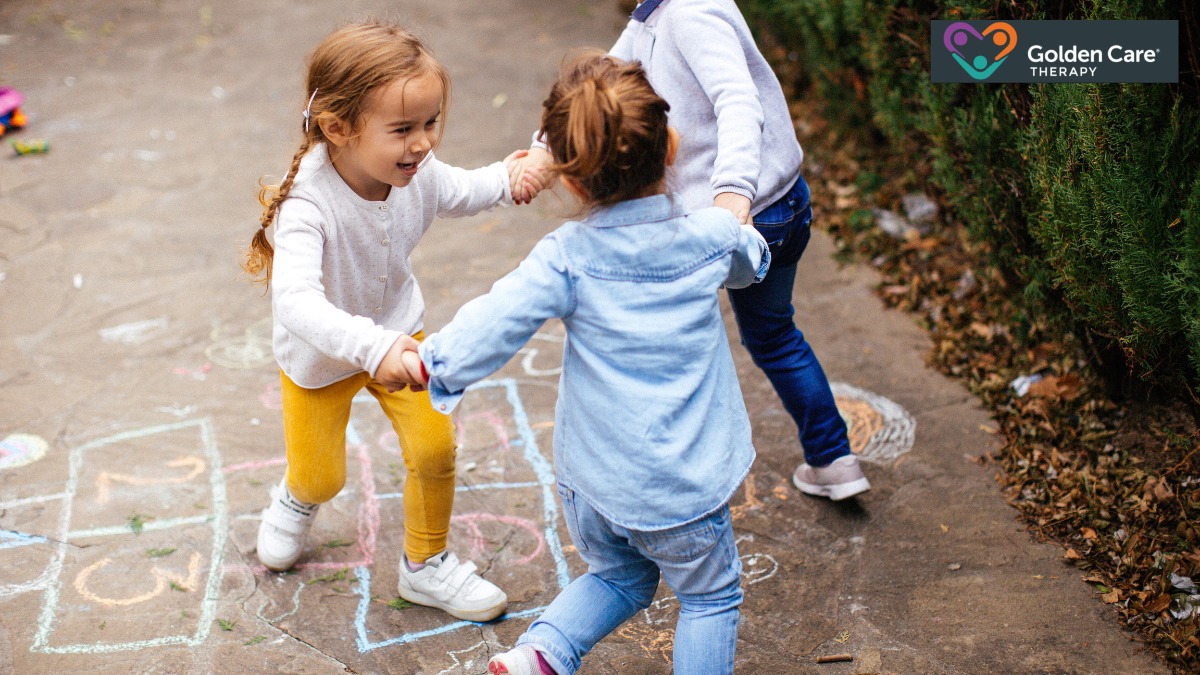Friendship is a vital part of childhood, shaping a child’s sense of belonging, self-worth, and happiness. For autistic children, making friends can sometimes be a challenge due to differences in social communication, sensory sensitivities, or difficulties understanding social norms.
However, with the right guidance, support, and patience, autistic children can build meaningful friendships that enrich their lives. Some may express excitement or self-soothe through behaviors like hand rubbing, which can be a natural part of their communication and sensory processing.
Helping your autistic child make friends is not about forcing them into social situations or expecting them to behave like neurotypical children. Instead, it’s about recognizing their unique strengths, respecting their comfort levels, and creating an environment where social connections can naturally develop.
Without further ado, here are tips that you can follow to help your autistic child make friends.
Understand the Social Challenges of Autistic Children
Many autistic children experience difficulties with social skills, but the reasons vary. Some may struggle with understanding body language or facial expressions, making it harder to interpret what others are thinking or feeling. Others may have intense interests that dominate conversations, making back-and-forth exchanges difficult.
Sensory sensitivities can also play a role — loud environments or unpredictable social settings might be overwhelming.
Understanding these challenges is the first step in helping your child navigate friendships. Instead of focusing on “fixing” social differences, the goal should be to help them connect with peers in ways that feel natural and comfortable for them.
Create a Socially Supportive Environment
A child’s environment plays a big role in shaping their social experiences. Some children thrive in structured settings with clear rules, while others do better in free play situations where they can explore interests with others.
The key is to provide opportunities where your child feels safe, accepted, and encouraged to interact at their own pace.

Structured activities such as LEGO clubs, robotics teams, or art classes can be excellent settings for social interaction.
It’s also helpful to create predictable social routines. If a child knows that every Saturday afternoon they will meet the same friend at the park, the consistency can reduce anxiety and make interactions feel more manageable.
Teach Social Skills in a Way That Feels Natural
Some social skills come naturally to neurotypical children, but autistic children may need explicit guidance in understanding social cues, turn-taking, and reciprocity in conversations. Teaching these skills doesn’t have to feel like a lesson — it can be integrated into daily life in a way that feels engaging and practical.
For example, if your child struggles with initiating conversations, you can practice simple conversation starters at home. Role-playing can also be a helpful tool.
Another strategy is using social stories; these are short, simple narratives that explain social situations and appropriate responses. These stories help children understand what to expect in different interactions, thus reducing anxiety and increasing confidence.
Encourage Friendships Through Shared Interests
One of the best ways to help an autistic child make friends is to encourage social interaction through activities they genuinely enjoy. When a child is doing something they love, they are more likely to engage with others in a meaningful way.
Look for clubs, groups, or community programs that align with your child’s interests. If they love animals, consider a pet therapy group or a visit to an animal sanctuary with other children.
If they enjoy video games, an online gaming community with moderated interactions can be a safe space for socializing.
Sometimes, friendships don’t have to look like traditional peer relationships. Some autistic children bond more easily with older or younger children, as well as adults who share their interests. Accepting these alternative friendship styles can help a child feel socially fulfilled even if their relationships don’t follow the typical mold.
Help Your Child Navigate Social Conflicts
Friendships come with ups and downs, and learning to navigate disagreements is an important skill. Autistic children may find it difficult to understand why a friend is upset or may struggle with handling frustration in social situations.
One way to support them is by helping them recognize emotions. Talking about emotions in everyday situations, using visual supports like emotion charts, or watching shows that highlight social interactions can help them develop emotional awareness.
If your child experiences a conflict with a friend, guiding them through problem-solving can be more effective than immediately stepping in.
Ask them open-ended questions like, “How do you think your friend felt when that happened?” or “What do you think might make them feel better?” Providing scripts for apologies or conflict resolution can also be useful.

Support Friendships Without Forcing Them
It’s important to remember that not every child craves constant social interaction. Some autistic children are perfectly happy with minimal friendships or prefer the company of just one or two people. Pushing a child into excessive social situations can lead to stress and burnout.
Instead, focus on quality over quantity. If your child has one meaningful friendship that makes them happy, that’s more valuable than a large group of acquaintances they struggle to connect with.
Socialization should always be on the child’s terms. If they need breaks from social interactions, respect their boundaries. If they prefer online friendships over in-person ones, that’s valid too. The goal is to support their social development in ways that align with their needs and comfort levels.
Final Thoughts
Helping your autistic child make friends is a journey that requires patience, understanding, and flexibility. There’s no one-size-fits-all approach, but by focusing on their strengths, creating opportunities for meaningful social interactions, and respecting their unique way of connecting with others, you can help them build relationships that bring joy and fulfillment.
Friendship doesn’t have to follow traditional norms to be valuable; as long as your child feels happy, accepted, and connected in their own way, they are on the right path. At Golden Care Therapy, we provide high-quality ABA therapy tailored to each child’s unique needs, helping them build meaningful social connections at their own pace.
Our dedicated team is passionate about creating supportive, nurturing environments where children thrive. If you’re looking for autism services in New York, New Jersey, Indiana, Georgia, or Florida, reach out to us today. Contact us now so we can work together to support your child’s growth and success!
Sources:
- https://www.autism.org.uk/advice-and-guidance/topics/family-life-and-relationships/making-friends
- https://www.ambitiousaboutautism.org.uk/about-us/media-centre/blog/10-reasons-people-autism-struggle-friendships
- https://www.altogetherautism.org.nz/friendship-may-look-different-for-autistic-people/
- https://www.autismspeaks.org/blog/5-dos-and-donts-supporting-friends-kids-autism



